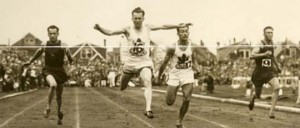
The Commonwealth Games are to Canada what the Olympic Games are to Greece as the first Commonwealth Games were held in 1930 in Hamilton, Ontario.
Bobby Robinson, a major influence within athletics in Canada in the 1930s implemented the event that had been talked about amongst Commonwealth nations for more than 30 years. Eleven countries with 400 athletes in total participated in the first Commonwealth Games, which was held in the Hamilton, Ontario. The City of Hamilton provided $30,000 to the participating nations to help cover the athletes travelling costs.
Since then, the Games have been conducted every four years, except for 1942 and 1946, due to World War II and have grown from 400 athletes to more than 4,000.
From 1930 to 1950 the Games were known as the British Empire Games, then the British Empire and Commonwealth Games until 1962. From 1966 to 1974 they took on the title of British Commonwealth Games and from 1978 onwards they have been known as simply the Commonwealth Games.
There have been 19 editions of this event on three continents since 1930—four of which have been held in Canada.
While other Games around the globe have been founded on geographic or climatic factors such as the Asian, Pan Am, African Games and Winter Olympics, the Commonwealth Games has been founded on history. Unique characteristics of the Commonwealth Games include being the only Games which shares a common language. All athletes and officials can converse with each other in English, creating an atmosphere that has led to the Commonwealth Games being long known as the “Friendly Games”.
The bonds of the Commonwealth Games help to encourage and support the pursuit of health and fitness in each of the 71 member nations and territories and provide an inspiration for youth to strive for excellence.







